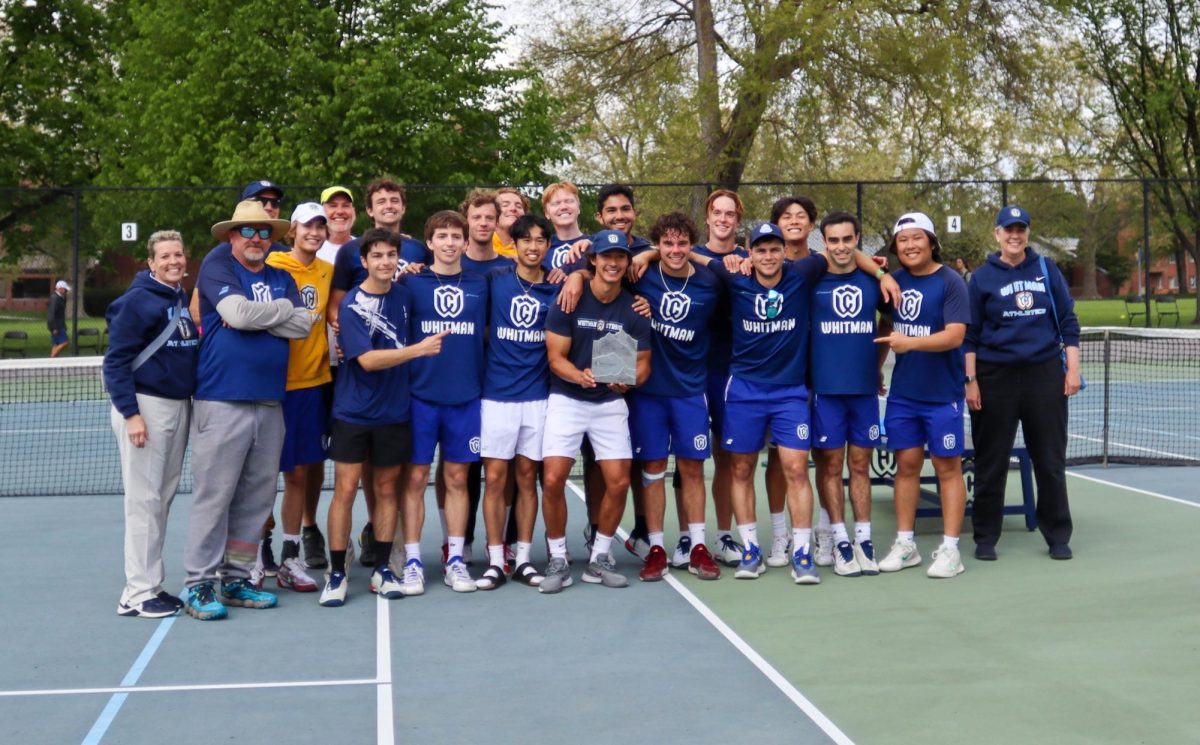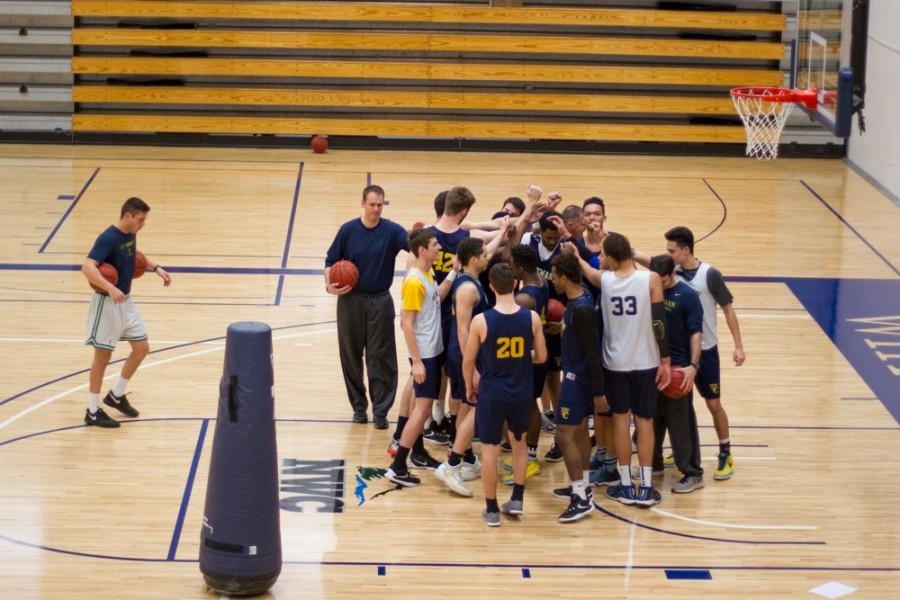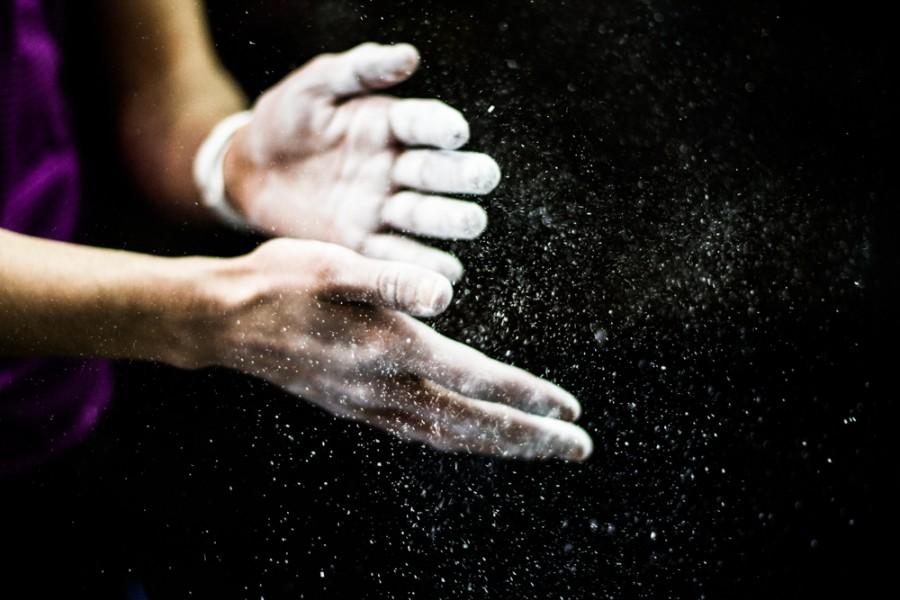In Conner Merten’s hometown of Kennewick, Wash., it was not uncommon for him to hear his athletic teammates, coaches or fans say things such as “You suck dick” or “fag” in response to his underperformance in athletics. On Jan. 27, after years of confusion, self-resentment and acting what his community perceived as “normal,” Mertens publicly announced via Twitter that he was bisexual and had a boyfriend, becoming the first active collegiate football athlete to come out as bisexual.

Mertens believes that by spreading stories like his own, people will learn that homophobic slurs perpetuate the problem of LGBTQ athletes feeling marginalized from the rest of the athletic community.
“[Being bisexual] was something that I buried. And when you bury it and bury it and bury it, it stays there for a while. I got very used to acting like somebody that I wasn’t,” he said.
Mertens describes his high school environment as hostile, as he felt constantly surrounded by what he calls a homophobic culture. He recalls never having a role model in his life or someone who called out homophobic behavior.
“I never had anybody to look up to. Ninety percent of the conversations between your friends were inappropriate,” he said. “Homophobic slurs saying ‘oh, you suck dick,’ or ‘homo,’ ‘queer,’ ‘fag,’ and things like that were just the way people talked,” he said.
The perpetual use of homophobic language in his high school forced Mertens to suppress his emotions and sexual orientation. He notes that the reason why he remained silent throughout his high school years was so he wouldn’t be treated as an outcast by his friends and wider school community.
“Hearing that [homophobic language] 24/7 around your friends, day-in [and] day-out, and always in a demeaning, demoralizing way, you start to believe it and you start to think that [homosexuality] is not okay. And you internalize that, and it grows as time goes on as you hear it more and more,” he said.
While at Willamette, Mertens was relieved to meet other people who were LGBTQ. He prided himself on telling people that they could be different, but when he reflected about his own life, he felt that he was being a hypocrite.
“At a certain point, you get tired of contributing to the problem. Because I was contributing to the problem by not being myself,” he said.
Mertens decided to come out to his football team now because he felt that his team was a safe community in which he would feel accepted regardless of his sexual orientation. He later sent a letter through his Twitter account directed to LGBTQ people in the Tri-Cities to address their feelings of alienation and the need for acceptance of LGBTQ individuals.
In coming out to his peers, Mertens emphasized that he was the same person that he was when he grew up in the Tri-Cities and that people should not view him differently now that he has come out.
Mertens has been interviewed by ESPN, Outsports and other news sources, and he was featured on Fox Sports on Sunday, Feb. 9. However, he remains adamant that the focus for these media outlets should be not on him but on the issue of LGBTQ athletes as a whole. Mertens wants people to focus on his story as a fellow teammate who could be gay but never felt that he could come out because of an athletic community that did not support LGBTQ athletes like him.
“I thought I was just some [Division III] kicker in the middle of Oregon, just a splash in the sports community, but athletics are a whole other world. I just wanted to be myself,” he said.
Mertens believes he is a part of a bigger story, one that’s not unique. Since Mertens came out last month, the University of Missouri’s All-American football player Michael Sam also announced that he was gay. Sam is predicted to become the first NFL football player to have come out publicly.
“Nobody knew that I was bisexual, so you never know who else could be. It could be the kid sitting next to you, the kid behind you in the batting order, the lineman who is blocking for you, the goalie that stops the goals for you,” Mertens said.
Since coming out, Mertens has received disparaging comments from individuals through email and Twitter, including comments from the Westboro Baptist Church. However, Mertens says he doesn’t let this get in his way and he realizes that society will have to work together with those who do not accept LGBTQ in order to make society more accepting of the LGBTQ community.
“I have gotten three death threats, some people telling me to kill myself and people telling me that I am going to hell,” he said. “I don’t think that responding to negativity with negativity solves anything, so I have been trying to be super positive about everything.”
Despite these reactions, Mertens says he has also received many supportive emails from athletes across the country. His teammates have also been a strong network of support.
“The team has been very supportive,” he said. “My teammates got to know me on a deeper level, and we became closer friends. That goes back to transparency. When you are transparent and real with people, they respond to it. They want to know more about you and be closer friends with you.”
A few days after Mertens came out, Chandler Whitney, a baseball player at Walla Walla Community College, decided to come out to his team and the wider public, announcing that he was gay and that he was dating Mertens.
To Whitney’s relief, his baseball team was extremely supportive as well. They reaffirmed that his sexual orientation had no impact on their relationship and that his coming out could only change their relationship for the better.
“The team is still the same, if not better,” he said. “We have great camaraderie, and personally, I feel like I am connecting with the guys a lot better, which makes us a stronger team. They are very comfortable with it and now joke about it. By no means is anyone awkward at all. It has been nothing but support.”
While both Mertens and Whitney found acceptance immediately within their own teams, coming out as an athlete created a difficult situation for them, one that they think many athletes struggle with. Initially, they were both afraid that their teams would not accept them and feared being cast out and viewed as a lesser athlete.
“The perception of people who like the same sex is that they are not masculine enough. If you are not masculine, you are not as good of an athlete. People associate poor athletic performance with homosexuality,” said Mertens.
According to Mertens, society views football players as the toughest and most intimidating people, which was a reason that he was afraid to come out to his team. Whitney faced a similar roadblock with coming out as a baseball player.
“If [baseball players] think of an LGBT baseball player, [they] do not think about someone who is going to hit for power or somebody who is going to throw 90 [miles per hour], but I do not fit that stereotype,” Whitney said.
Mertens also notes that after his story hit national news, he has had various athletes come out to him to share their own stories of fear and isolation in the athletic community.
“There are many athletes who have come out privately to me who wish to stay anonymous, but I can tell you that they are a hell of a lot better athletes than I am and in a lot more competitive leagues than I am,” he said. “Hopefully one day they will not have to [hide].”
To Mertens, these stories have helped him understand that his background is not unique and that other athletes struggle with coming out as well.
“When I get an email, everybody has their own story, but the general theme stays the same, where they don’t want to be treated differently and not have the chances that they might have once had otherwise,” he said. “It just shows you how desperate they are to be themselves. I hope that people will see the support that I have gotten and it will encourage them to come out too.”
According to Mertens, the fear of coming out that athletes experience and the silence on this issue perpetuates the isolation that LGBTQ athletes endure.
“Indifference is the worst problem. Standing by idly while allowing [homophobic actions] to happen hurts … if you are not for the cause, then you are against it. By not standing up for LGBT rights, then you are saying what is going on in our society [is okay], instead of noticing that there are a lot of things that need to be changed” said Mertens.
While Mertens and Whitney might be getting national exposure for their public announcements, they want to make sure the focus is on their message, not on them. Mertens hopes that one day, stories like his will be commonplace and not national news.
“[My story] should not be news, but unfortunately in our society it is because we do not have that level of acceptance … the LGBT community is outcasted, alienated and miniaturized,” he said. “We are forced into hiding essentially because of the unacceptance and the persecution. One day I pray that this is not news and that a kid coming out to his team is just seen as normal, but we are not there yet.”













